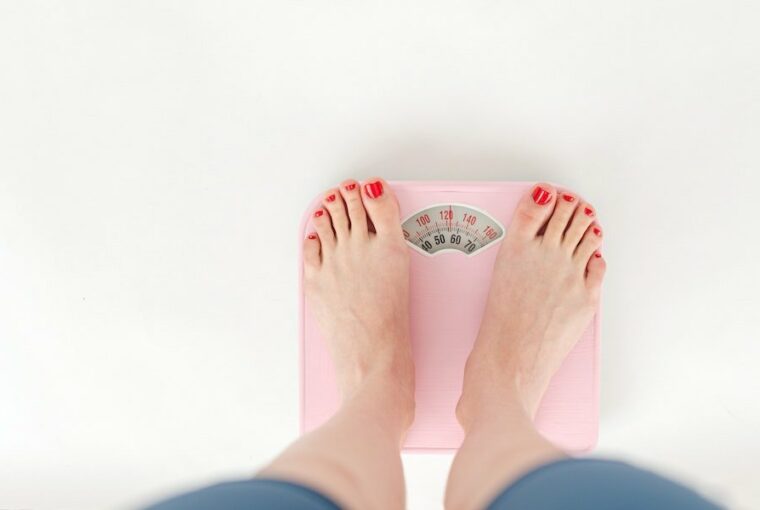If you’re looking to lose 4lb in a week, you’re in the right place. This step-by-step guide will help you reach your goal and make it a reality. Weight loss is not always easy and can be a daunting task, so having the right resources to help you along the way can make all the difference. With this guide, you’ll have the necessary information to make the right decisions and successfully shed 4lb in just 7 days. We’ll start by discussing the basics of healthy eating and exercise and then move on to more specific tips and tricks that will give you the best chance at success. You’ll find that with a little dedication and determination, you can make significant progress in a short period of time. So let’s get started – let’s get on the path to a healthier, lighter you!
How To Lose 4lbs In A Week
1. Start With A Healthy Diet.
One of the most important aspects of weight loss is ensuring you’re eating a nutritious and balanced diet. Make sure to include plenty of fruits, vegetables, and whole grains in your meals to ensure you’re getting the nutrients your body needs. In addition to eating healthily, make sure to exercise regularly. Exercise not only helps to burn calories, but it also has other benefits, such as reducing stress and improving moods.
2. Incorporate Regular Exercise Into Your Routine.
If you’re looking for a way to lose weight that is both effective and enjoyable, incorporating regular exercise into your routine is a great option. There are many different types of exercises that can help you lose weight, so find one that you enjoy and stick with it! Some popular options include walking, jogging, biking, swimming, and yoga.
3. Make Sure To Limit Your Intake Of Unhealthy Foods.
It’s important to avoid eating too many unhealthy foods if you want to lose weight. Unhealthy foods include high-calorie foods and drinks, processed foods, and sugary snacks. Instead, focus on eating healthy foods that will help you lose weight. Examples of healthy foods include fruits, vegetables, whole grains, and low-fat dairy products.
4. Avoid Eating Late At Night.
Eating late at night can cause you to gain weight because it increases your intake of calories and sugar. Instead of eating late at night, try to eat a light dinner around 7 pm or 8 pm so that you’ll have enough energy to get through the evening hours.
5. Make Sure To Stay Hydrated.
Water is essential for both health and weight loss. Make sure to drink plenty of water every day to help reduce your calorie intake and keep your body hydrated. In addition to water, try to drink tea, coffee, or unsweetened fruit juice.
6. Make Sure To Get Enough Sleep.
Getting enough sleep is important for both your physical and mental health. When you’re well-rested, you’re more likely to have the energy and motivation to stick to your weight loss goals. Try to get at least 7 hours of sleep each night.
Basics Of Healthy Eating
1. Eat A Balanced Diet.
Eating a balanced diet is key to losing weight and staying healthy. Make sure to include plenty of fruits, vegetables, whole grains, and lean proteins in your meals. Avoid eating too much sugar, processed foods, and saturated fats.
2. Get Enough Exercise.
Exercise is one of the best ways to lose weight and improve your overall health. It can help you lose fat around your midsection and lower your risk of heart disease, stroke, diabetes, and other illnesses. Exercise can be done at any time of day – even if you’re busy – so try to fit in at least 30 minutes of activity every day.
3. Drink Plenty Of Water.
Drinking plenty of water helps you stay hydrated and energized throughout the day. It also helps reduce the number of calories you eat, which can help you lose weight fast.
4. Avoid Eating Late At Night.
Eating late at night can lead to poor sleeping habits and an increased risk of weight gain. Instead of eating after dinner, try to eat a light meal at around 6 pm.
Healthy Exercise Practices
- Start with small goals. If you’re just starting out, it can be easier to set smaller goals rather than thinking about how much weight you want to lose in a week. Once you’ve established some smaller goals, you’ll be more likely to stick to them and see results.
- Make exercise part of your daily routine. If you’re not used to working out, it can be difficult to get into a routine. Make exercise a part of your daily routine and make it as easy and comfortable as possible.
- Find a workout that works for you. Not all exercises are created equal – some people prefer cardio, while others prefer weightlifting. Find a workout that works for you, and stick with it!
- Take time for yourself. When you’re working out, take time for yourself – whether that means taking a break after every few sets or taking the time to stretch afterward. You won’t see as much progress if you’re constantly pushing yourself beyond your limits.
- Hydrate and refuel. When you’re working out, it’s important to drink plenty of water and refuel with healthy snacks. This will help you stay energized and motivated throughout your workout.
- Listen to your body. If something feels too hard or too uncomfortable, stop and take a break. Listen to your body and take the time to rest and recover. You’ll be better off for it in the long run.
Eating Right For Weight Loss
1. Start With A Balanced Diet.
A healthy diet is essential for weight loss, and it’s important to make sure that you’re getting the right mix of nutrients. Make sure to include plenty of fruits and vegetables, whole grains, and low-fat proteins in your meals. Avoid sugary drinks, processed foods, and foods high in fat and sugar.
2. Incorporate Physical Activity Into Your Daily Routine.
Physical activity not only helps to burn calories, but it can also help to improve your mood and overall health. Try to get at least 30 minutes of exercise each day – even if that means walking around the block once!
3. Keep A Positive Attitude.
Losing weight is never easy, but it’s important to stay positive throughout the process. When you start seeing progress, be sure to celebrate! This will help you maintain motivation and keep up the good work.
4. Don’t Give Up On Your Weight Loss Goals.
It can be tough to stick to a healthy diet and exercise routine, but don’t let yourself get discouraged. If you make enough progress in the first few weeks, it’s more likely that you’ll be able to maintain your new lifestyle over time.
5. Talk To Your Doctor Before Starting Any Weight Loss Program.
If you have any medical conditions or are taking any medications, it’s important to speak with your doctor before starting a weight loss program. He or she may have some recommendations that will help you to safely and effectively lose weight.
Portion Control Tips
- Start by creating a meal plan. This will help you track your progress and make sure you’re eating the right things every day.
- Make sure to portion out your food carefully. Eating too much can lead to weight gain, so be sure to keep track of how much you’re eating and make sure to stick to the recommended portions.
- Try to avoid eating out or eating high-calorie foods. These types of foods can quickly add up and lead to weight gain.
- Be sure to exercise regularly. Even 10 minutes of moderate daily activity can help you lose weight and improve your overall health.
- Keep a positive attitude, and keep going even if you don’t see immediate results. Every person is different, so it may take some time for changes to happen.
- If you do experience any difficulty sticking to your diet or exercise routine, talk to a doctor or therapist. They can help you find the resources and support you need to make lasting changes.
Conclusion
Congratulations on making it this far! In this guide, we’ve provided you with all the information you need to reach your weight loss goals. First, we explained the basics of weight loss and how it works. Next, we outlined the different types of diets available to you and explained which one is right for you. Finally, we provided tips on how to stay motivated and reach your weight loss goals. So remember, if you want to lose weight, follow these simple steps and you’ll be on your way to success!




